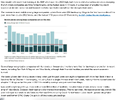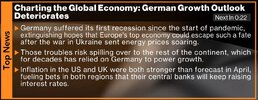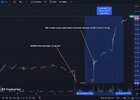- Joined
- 3 November 2013
- Posts
- 1,614
- Reactions
- 2,878
IMF calls for Fed to raise rates further — 'The job is not quite yet done'
The International Monetary Fund said Friday in a new report that the US can avoid a recession this year, and that the Federal Reserve should raise rates again and hold them there through late next year.
Meanwhile markets are pumping off the back of tech and AI





